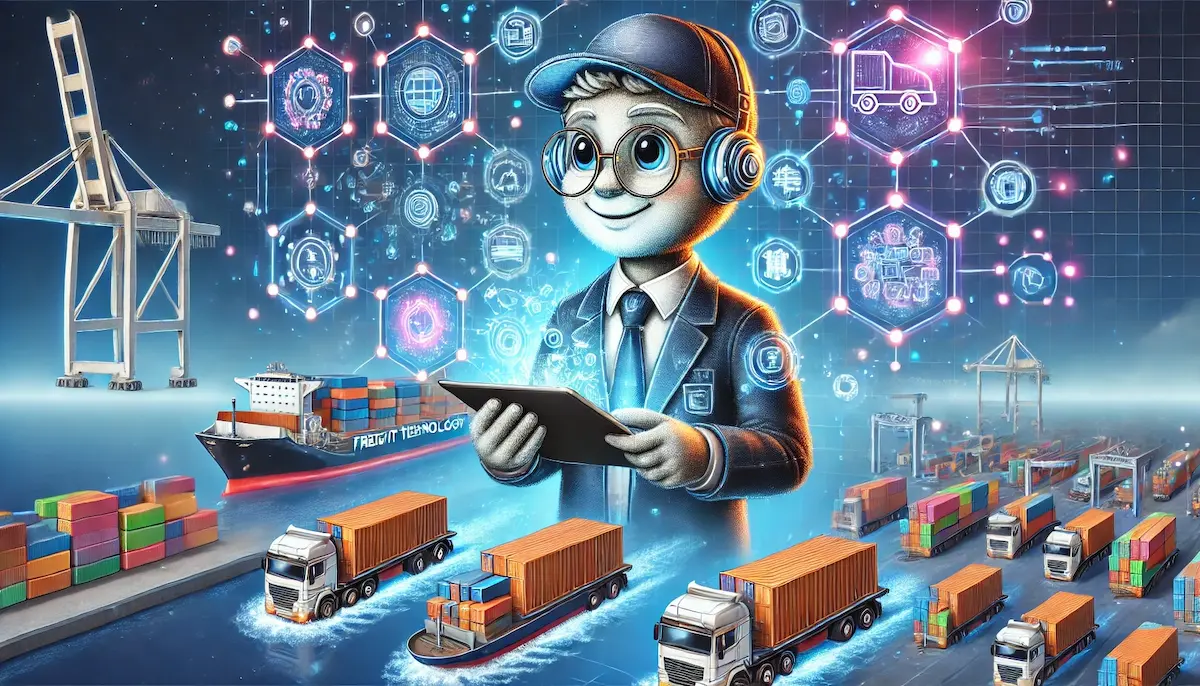Freight technology encompasses the advanced tools and systems used to enhance the efficiency, speed, and reliability of transporting goods. This technology is pivotal in modernizing logistics operations, making it easier for businesses to manage shipments and meet customer demands. Let’s explore the key aspects of freight technology and its transformative impact on the industry.
The Role of Freight Technology
Freight technology aims to streamline the movement of goods across various transportation modes, including road, rail, air, and sea. By integrating digital solutions, businesses can optimize their supply chains, reduce costs, and improve delivery times.
Key Technologies in Freight Management
Several cutting-edge technologies are shaping the future of freight management:
1. Internet of Things (IoT)
IoT devices, such as smart sensors and trackers, provide real-time data on the location and condition of shipments. This enables companies to monitor their cargo throughout the journey, ensuring it is handled properly and arrives on time.
2. Blockchain
Blockchain technology offers a secure and transparent way to record transactions and track shipments. In the freight industry, it enhances traceability, prevents fraud, and ensures the authenticity of goods.
3. Artificial Intelligence (AI) and Machine Learning
AI and machine learning algorithms analyze vast amounts of data to optimize routes, predict delivery times, and improve inventory management. These technologies help freight companies make data-driven decisions, enhancing operational efficiency.
4. Autonomous Vehicles and Drones
Autonomous trucks and delivery drones are revolutionizing the transportation of goods. These technologies reduce the need for human drivers, lower transportation costs, and increase delivery speed and reliability.
5. Freight Management Systems (FMS)
FMS software provides a centralized platform for managing all aspects of freight operations. It offers features like route planning, scheduling, tracking, and reporting, making it easier to oversee and optimize freight activities.
6. Robotics and Automation
Automated systems, such as robotic picking and sorting in warehouses, streamline freight handling processes. These technologies increase accuracy and efficiency, reducing labor costs and minimizing errors in order fulfillment.
Benefits of Freight Technology
The adoption of freight technology offers numerous advantages for businesses:
1. Improved Efficiency
Automation and real-time data analytics streamline freight operations, reducing delays and minimizing errors. This leads to faster delivery times and improved operational efficiency.
2. Enhanced Visibility
Technologies like IoT and blockchain provide end-to-end visibility across the supply chain. Companies can track their shipments in real-time, ensuring transparency and accountability.
3. Cost Reduction
Optimized route planning, efficient warehouse operations, and reduced reliance on human labor lower operational costs. This allows businesses to allocate resources more effectively and improve their bottom line.
4. Better Risk Management
Advanced analytics and AI help companies anticipate disruptions and develop contingency plans. This proactive approach minimizes the impact of unforeseen events, such as natural disasters or supply chain disruptions.
5. Superior Customer Service
With faster and more reliable deliveries, companies can meet customer expectations more effectively. Real-time tracking and timely communication enhance the overall customer experience.
Conclusion
Freight technology is transforming the way goods are transported and managed, providing businesses with the tools to be more agile, efficient, and customer-focused. As these technologies continue to advance, their impact on the freight industry will only grow, driving further innovation and improvement.
Blockfine thanks you for reading and hopes you found this article helpful.
